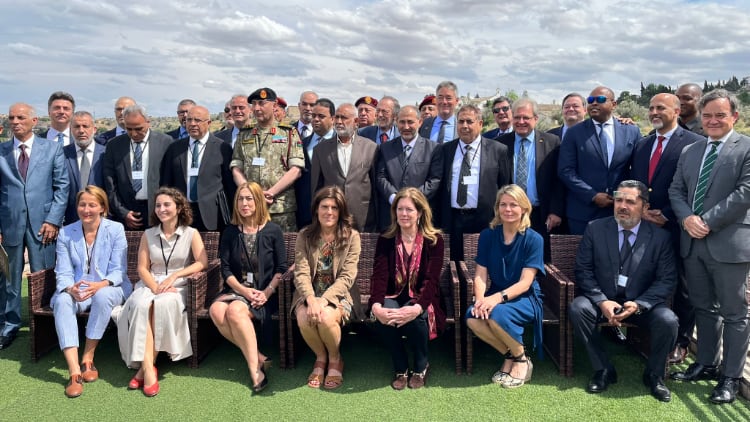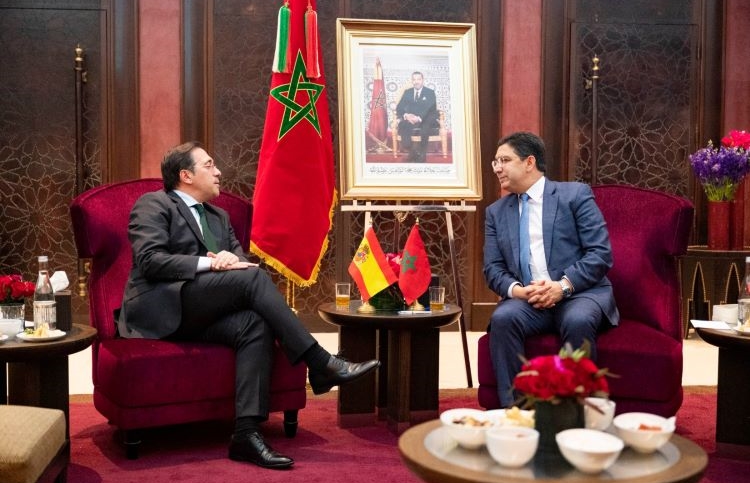The Diplomat
The Spanish government reiterated its commitment to a “stable, united and democratic” Libya, as highlighted at the international meeting held on Monday and Tuesday in Toledo to reactivate support for the disarmament and demobilisation programme in the Maghreb country.
The meeting, organised by the Toledo International Centre for Peace (CITPax), in collaboration with the Spanish Ministry of Foreign Affairs, was attended by representatives of the United Nations and the European Union, as well as other countries, including the United States, the United Kingdom, Italy, Germany, Turkey and Egypt, and members of the different Libyan factions.
According to a Libyan military source quoted by the Italian “Agenzia Nova”, the aim of the two days of work was to address the role of the 5+5 Joint Military Committee in Libya, signatory of the fragile ceasefire in force since 2019, with a dual objective: to accelerate the withdrawal of foreign mercenaries from Libyan territory and integrate the militias and armed groups into Libya’s national institutions.
On Monday, the meeting was inaugurated by the Minister of Foreign Affairs, José Manuel Albares, who, on his Twitter account, assured that “Spain is involved in the stabilisation of Libya and in the security of the southern flank”, an idea that the ‘number two’ in his department, Ángeles Moreno, insisted on yesterday.
The Secretary of State for Foreign Affairs closed the workshop, and stated on the same social network that “Spain and the UN are committed to a stable, united, democratic and prosperous Libya”.
The workshop held in Toledo allowed the ten members of the 5+5 Committee (made up of five high-ranking officials from Tripoli and five from the self-proclaimed Libyan National Army of the central leader Khalifa Haftar) to meet for the first time since their talks were frozen in April. Among those in attendance were the Vice President of the Libyan Presidential Council, Abdullah al Lafi, and the Chief of Staff of the Libyan Armed Forces loyal to the Tripoli executive, General Mohamed al Haddad.
The international participants also included, in addition to Spanish diplomats, the UN Secretary-General’s Special Adviser on Libya, Stephanie Williams; the EU Ambassador to Libya, the Spaniard José Antonio Sabadell; the US Ambassador to Libya and White House Special Envoy, Richard Norland, and Nicola Orlando, Special Envoy for Libya of the Italian Minister of Foreign Affairs and International Cooperation, Luigi Di Maio; the French Special Envoy for the Libyan crisis, Paul Soler; the Deputy Head for the Levant and North Africa at the British Foreign Office, Rosy Cave; and the German Ambassador in Tripoli, Michael Ohnmacht. Also taking part were Ahmed Abdelmeguid, Director of Libyan Affairs at the Egyptian Foreign Ministry, and Barbaros Dicle, Deputy Director General for North Africa at the Turkish Foreign Ministry.
According to the military source quoted by “Agenzia Nova”, the meeting discussed the integration of militias and armed groups into security institutions and support for the implementation of the plan to withdraw mercenaries from the country: there was no discussion of the political or constitutional crisis in Libya. The five “Eastern” representatives of the Military Committee announced last April that they would suspend their work until the political crisis in the country was resolved, blaming the head of the Government of National Unity, Abdulhamid Dabaiba, for a possible political division of the country.







